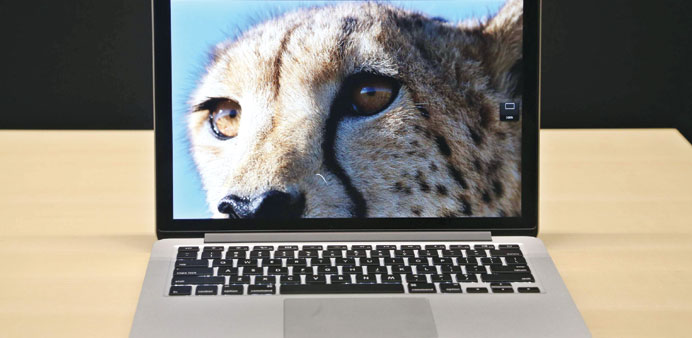|
Earlier this month, in London, it was reported that for the first time a computer program passed what is known as the Turing test by fooling 30% of the people it chatted with into believing they were interacting with a human being. |
This blurs the borders between people and computers. Chess computers have beaten people before, but they were carrying out a set of rules devised by humans. Computers with emotional intelligence can now trick us. If in the near future we get a text message that is, for example, ironic or kindhearted, it could be from a memory chip that - while it doesn’t know what feelings are - can compute them.
And if the computer can access all available data about us on the Internet, then this artificial intelligence effectively removes that big umbrella that has protected individual privacy for some 200 years, at least in democracies. When computers can pretend to be people and use the sum total of their vast knowledge to influence us, we effectively revert - in a new digital way - to a new state of monarchy.
The Internet has already removed the protection of time and space. Al Gore and others have written about this. A computer can be located in Tahiti, in Würzburg or in Novosibirsk - it doesn’t make any difference. And a cyberattack, or the sale of some stocks, can take place in a fraction of a second.
In this context it’s crucial to be nanoseconds ahead of the game to recognise intent or have time to react to something that has occurred. The whole history of human society and technology is also the story of rapidly shrinking gaps in reaction times and the time necessary to think things through - and in the past 25 years that gap has shrunk to just about zero.
For rocket attacks, there was an early warning system that gave about a half-hour reaction time. But in a cyberwar, it will depend on whether secret services have planted radars that have real-time capacity. As for the buying and selling of stocks: In 1989, when the Berlin Wall fell, brokers had the time, even if it was only a matter of minutes, to place calls to find out what stock prices were doing, and place orders accordingly. Now, banks, hedge funds and businesses invest billions to find out about transactions the moment they happen, or even a fraction of a second earlier.
That all becomes easier the more information we have about people. If the market wants to look inside our heads, it will be able to anticipate our behaviour, which is why so much is invested in real-time data analysis.
But election campaigns do the same thing. They know that increasing numbers of voters don’t decide who to vote for until the last minute.
Politicians thus want to know the realities of the lives of these voters so that they can use the right tailor-made words to influence them. American campaign headquarters have become high-tech data machines.
Because in a nanosecond world where everything is interrelated, secret services and politicians and activists want to be able to identify relevant developments in real time. So, for example, they seek ways to recognise as quickly as possible any unusual news spreading on Twitter or other communication pages.
Time and space have always meant that we could be forewarned, have some time to figure out a reaction even if it was just to protect ourselves. That’s over. Now people can no longer be sure if the Internet is obeying humans or instead computers that have simply come to know what emotional stimuli are. The situation is claustrophobic.
Humans with all their contradictions react to the disappearance of the protective umbrella in contradictory ways. On the one hand, we protest being monitored and want to prevent computers from secretly watching our every move. On the other hand, even ordinary folks like the idea of having eyes everywhere.
We want to know, right now, why the subway is late. We want a text message and pictures immediately if our home is being broken into. We want to record our body’s reactions to physical activity.
When we’re leaving for a vacation, we want to know what the weather’s like wherever we’re heading. And we want stock information at our fingertips as fast as the big financial firms have it.
This thirst for information is destroying the private sphere, not least because it means people have devices in their homes that broadcast information nonstop to the exterior.
And the Turing test breakthrough potentially means that this information doesn’t go to humans but to other machines following their own agendas.
It is no longer pure fantasy that computers on the Internet generate misinformation so that other computers can gain those nanoseconds worth of advance warning. Then people look on helplessly as they did during the 2008 bank crash when they lost control of the financial tools they themselves had developed.
Living together in a real-time world order is a little like being in a packed elevator - an elevator that like the space ship in Stanley Kubrick’s 2001: A Space Odyssey is controlled by a rebel computer. Players in the economy, military and politics, but more and more also regular folks, are beginning somewhat uneasily to register the Internet-induced loss of the protection provided by space, time and the private sphere.
Conceived of by the Pentagon to keep lines of communication open after atomic attack, the Internet has become a threat. Humankind has once again outsmarted itself. We now need confidence in our ability to find a way to neutralise the enemy.- Worldcrunch/Die Welt

